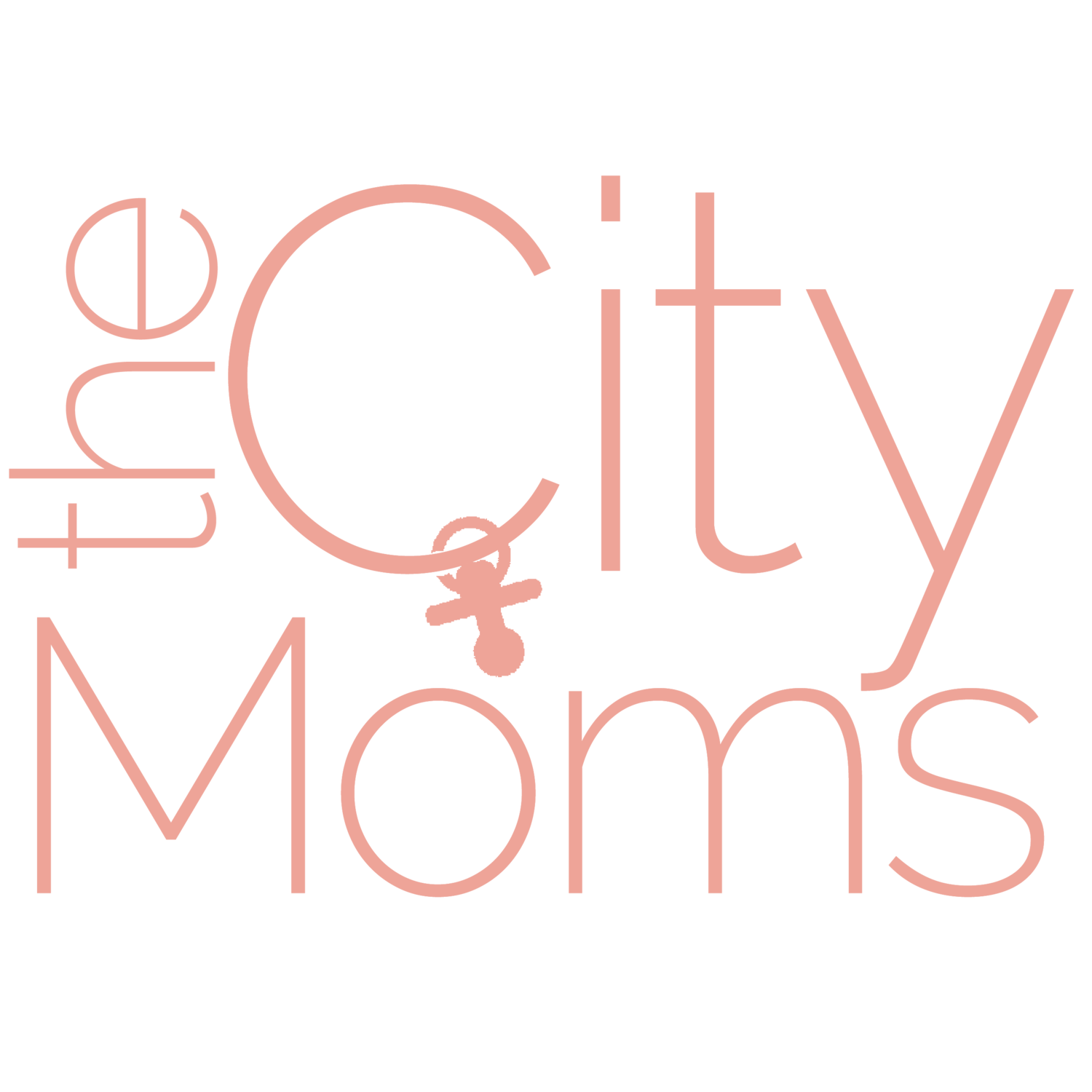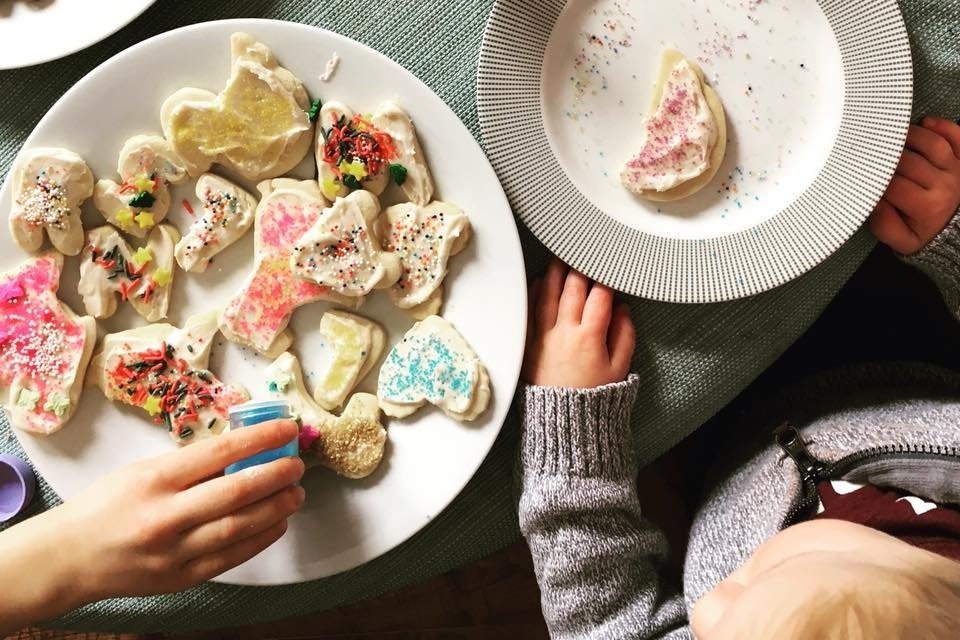Grief and Children at the Holidays
An unprompted, “Do we still get to have Christmas?” came from the back seat.
I shifted my gaze to the rearview mirror to catch my four-year-old’s face looking back at me with a puzzled look, matching my own.
It was March. Why was she asking about Christmas?
Before I could ask, she continued, “You know, because Danny died? And, at Christmas, you are with your family?”
My motherly knowing finishes her thought that she can’t quite communicate. Her little mind— seeing the world in black and white always— knows that families are together at Christmas; but, our family can never be together again.
Danny, my younger brother, died less than two months earlier. It was sudden, completely unexpected and the biggest heartache my family of origin has ever faced. But, I am 35. My kids now have this heartbreaking loss as a big piece of the foundation of their life.
Does That Mean, With So Much Loss Already, Our Family Loses Christmas, Too?
Even in the years before Danny’s death, I found myself a little blue at Christmas. My joke is that I am a little more, “Silent night than Holly Jolly.” It has something to do with my subconscious always keeping count and knowing that I am in a memory when I am in it. This strange mental gymnastics keeps me keenly aware of how many Christmases I have with my kids as “believers” in the commercial, yet fun, magic of the season.
Danny introduced Claire’s children to family horses during Thanksgiving 2018.
I am in tune with just how many– and maybe more over– how few Christmases I get with them at home. Or, had in my own childhood. Or, have in my lifetime. There is pressure to celebrate; but, also something to mourn in the recognition of the finite numbers and time. And, on top of my own usual melodramatics, this year there is a new number and element to mourn: it’s the first Christmas without my brother.
The reminder of his absence has fingerprints all over our day-to-day, but in a moment of self-awareness and my daughter's questions, it’s clear it will just be that much more apparent at the holidays.
Claire’s brother Danny played the guitar and serenaded their family many nights during the holidays. Her son Theo loved to watch him strum and they joked that this was his first lesson.
Here is how I plan to guide my kids through this first season, and all the ones to come:
Prepare your village
Let teachers and other adults in your child’s life know about your family’s loss. This can prevent a child from feeling left out if there is a specific family member gift-making in a classroom, conversations about “seeing everyone” or a surprise change in the child’s mood when they are not in your care.
Let kids express their feelings
In the early days, I worried when my five-year-old son would swing from sadness right into happiness. I asked his school counselor about this and she assured me this was to be expected. She wrote, “With children, grief often happens in bursts, meaning they seem fine most of the time, then may cry or say they miss their loved one, then go right back to playing. This is completely normal.” These bursts are a way of trying not to get overwhelmed, but during the holidays these feelings may be more profound. Allow for the space to express and feel.
For Christmas 2018 all Theo wanted was a guitar like Danny's. Danny surprised him with a ukulele on Christmas, and it remains a treasure in our home to this day.
Plan manageable activities
December can feel like it flies by at a breakneck pace. Know you can always opt out and build space for stillness and contemplative reflection if that is what you need. I have a friend who marks one whole weekend in December with a “PLAN: No plans.” She needs this buffer in the month to keep her own sanity and peace.However, it is wise to remember that a built-in slow day for kids could seem long and maybe even boring especially as anticipation builds for the Big Day. Encourage simple creativity to occupy their time. Grab a journal and encourage writing stories, coloring, or keeping a diary. Pick up craft supplies to keep on hand. Make wishlist collages or seasonal mood boards with old catalogs and magazines.
Share stories
Talk about the loved one and how they celebrated the holiday. Make your mother’s Christmas cookies and share her story with the recipes. Watch the movie a loved one adored. I will be serving shrimp cocktail on Christmas Eve and telling my kids just how many shrimp my growing, teenage brother would devour at my uncle's Christmas Eve parties growing up. (The limit did not exist!)
MORE BY CLAIRE:
Share your sadness, too
Let a child in on your feelings appropriately. Let them know you are sad, too. Show them how to grieve, and honor your traditions, but also recognize that everything is different now so keep the door open for making new traditions and memories that make sense and delight you all.
Take care of yourself
One of the greatest lessons I have learned in my 30s, even before the loss of my brother and even with a very much alive and wonderful mother (and mother-in-law!), is to do my own mothering. This means doing the work of making my own magic any day, but especially at Christmas. It is orchestrating the events that will make memories, yes. But, also orchestrating what I want out of the season. If I am lusting for some gift, I make it known. I don’t make a gift giver read my mind. I make sure to make time for a quick solo stroll through my favorite stores all decked out of the season with a red cup because a bustling, festive mall brings me joy and all the right kind of nostalgia feels.
Claire smiling for a selfie after Christmas dinner with her husband and siblings in 2016. The paper crowns are from "poppers" that always are at each place setting during Christmas.









